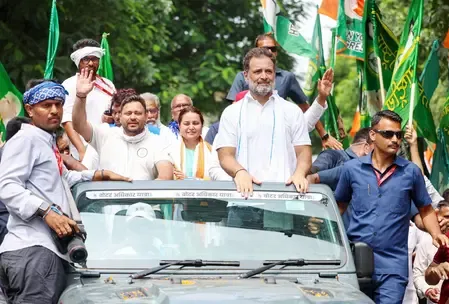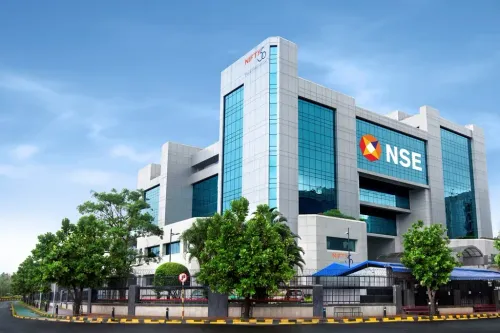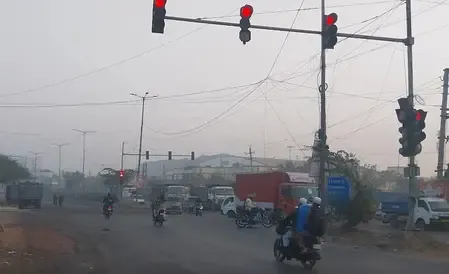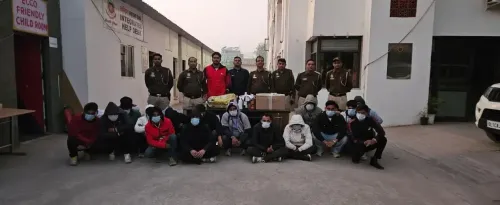Are Every Polls Making or Breaking the Opposition Alliance?

Synopsis
Key Takeaways
- Internal conflicts within the Mahagathbandhan may hinder its electoral success.
- Direct contests among allies could lead to fragmentation.
- JMM's independent candidacy raises questions about alliance stability.
- RJD's leadership is crucial for seat-sharing negotiations.
- Political dynamics in Bihar reflect broader trends in national politics.
New Delhi, Oct 19 (NationPress) The Mahagathbandhan, an alliance of Bihar's opposition parties, is on the brink of internal political rivalries as its members remain steadfast in their positions.
Reports indicate that over a dozen seats will see direct competition among its allies, with nominations continuing for one more day prior to the second phase of the Assembly elections scheduled for November.
From Parliamentary to Assembly elections, and through various blocs like INDIA and Mahagathbandhan, efforts by parties opposing the Bharatiya Janata Party (BJP)-led National Democratic Alliance (NDA) have struggled to achieve unity.
As the political landscape shifts and evolves, the dynamics of these so-called 'friendly' contests, along with strategic movements, are continuously influencing the overall political scenario.
Simultaneously, the Jharkhand Mukti Morcha (JMM), a member of the INDIA bloc, has reportedly failed to persuade its allies to collaborate in the upcoming Bihar Assembly polls.
The JMM has opted to contest independently, fielding candidates in six Bihar seats.
Labeling it a 'betrayal', JMM General Secretary Supriyo Bhattacharya stated that upon victory, the next government in Bihar will not be formed without their agreement.
A poor polling outcome could have repercussions for the Hemant Soren-led government in Jharkhand, where Bhattacharya reminded the Rashtriya Janata Dal (RJD) about its ministerial position in the Cabinet.
According to the JMM leader, mutual respect is essential.
RJD's de-facto Chief Tejashwi Yadav has emerged as the primary negotiator for seat-sharing, as the largest single party in the Opposition alliance.
In the lead-up to the 2024 Lok Sabha elections, Jharkhand experienced a split in the alliance when the Communist Party of India (CPI) terminated its association with the INDIA bloc, expressing its intent to contest eight out of fourteen Lok Sabha seats.
Interestingly, the CPI currently holds no seats in the Lok Sabha from the state.
In the neighboring state of West Bengal, the INDIA bloc has completely fragmented.
The Chief Minister, Mamata Banerjee's Trinamool Congress (TMC), has refused to collaborate with its allies in both Parliamentary and Assembly elections.
The TMC even challenged the then State Congress Chief and Opposition leader in the Lok Sabha, Adhir Ranjan Chowdhury, in his stronghold of Berhampore.
This contest, bolstered by a significant number of minority voters, propelled TMC candidate and former cricketer Yusuf Pathan to the Lok Sabha.
Notably, the Congress is now contesting in alliance with former adversaries, the Left parties, in the state.
In the South, INDIA bloc allies in Kerala are fielding candidates in two critical Lok Sabha seats traditionally held by the Congress.
Before the Congress re-nominated Rahul Gandhi, the CPI had announced Annie Raja, a prominent leader and national executive member, as its candidate for the Wayanad constituency.
In the Thiruvananthapuram Parliamentary constituency, the Left alliance similarly nominated Pannian Ravindran to contest against Congress candidate Shashi Tharoor.
However, it was BJP's Rajeev Chandrasekhar who came second after Tharoor, trailing by around 16,000 votes, while Ravindran finished a distant third, with over a 94,000 vote gap from the BJP candidate.
In Alappuzha, K.C. Venugopal reclaimed the seat for Congress, defeating CPI's A.M. Ariff by more than 63,000 votes.
In the upcoming Bihar Assembly elections, too many 'not-so-friendly contests' could jeopardize the Opposition's political strategy.










